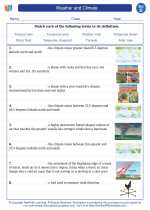Weather and Climate -> condensation
Condensation
Condensation is the process in which a substance changes from its gaseous state to its liquid state. This occurs when the molecules of a gas slow down and come together to form liquid droplets. It is the opposite of evaporation, which is when a liquid changes to a gas.
Causes of Condensation
Condensation occurs when warm air cools down. As the air cools, it loses its ability to hold moisture, leading to the formation of water droplets. This can happen when warm air comes into contact with a cold surface, such as a glass of cold water or a bathroom mirror after a hot shower.
Examples of Condensation
Condensation can be observed in various everyday situations, such as when steam from a boiling kettle turns into water droplets on a cold surface, or when a cold drink causes moisture to form on the outside of the glass. It is also a crucial part of the water cycle, as water vapor in the atmosphere condenses to form clouds and eventually precipitation.
Study Guide
- What is condensation?
- What causes condensation to occur?
- Provide examples of condensation in everyday life.
- How does condensation play a role in the water cycle?
Understanding condensation is important in comprehending various natural phenomena and everyday occurrences. It is essential to grasp the concept of condensation to understand topics like weather patterns, cloud formation, and the water cycle.
By mastering the study guide questions, students can solidify their knowledge of condensation and its significance in the world around them.
[Condensation] Related Worksheets and Study Guides:
.◂Science Worksheets and Study Guides Fourth Grade. Weather and Climate
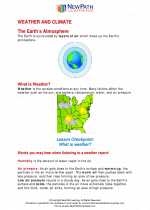
 Activity Lesson
Activity Lesson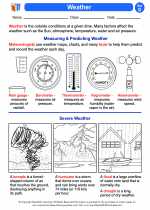
 Worksheet/Answer key
Worksheet/Answer key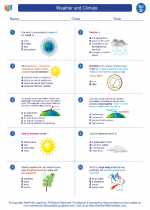
 Worksheet/Answer key
Worksheet/Answer key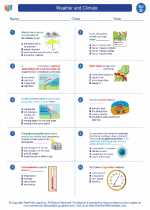
 Worksheet/Answer key
Worksheet/Answer key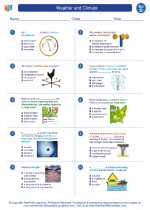
 Worksheet/Answer key
Worksheet/Answer key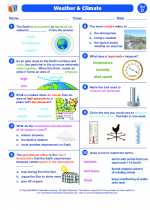
 Vocabulary/Answer key
Vocabulary/Answer key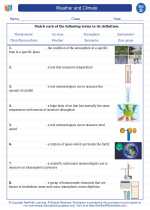
 Vocabulary/Answer key
Vocabulary/Answer key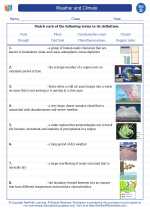
 Vocabulary/Answer key
Vocabulary/Answer key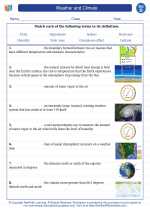
 Vocabulary/Answer key
Vocabulary/Answer key